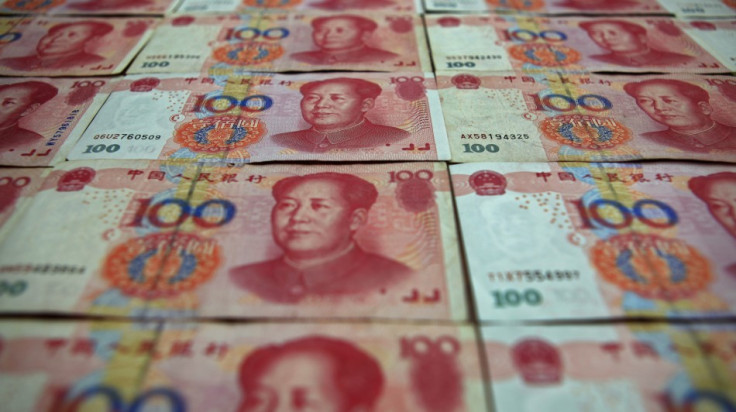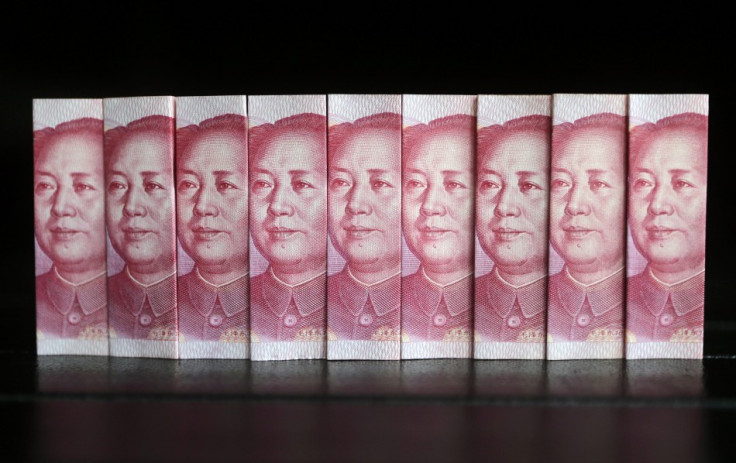Building Business Abroad: Early China Renminbi Adopters Reap the Rewards

For European companies doing business with China, or competing for a share of its growth, the renminbi is an effective way to settle trade, make investments and deepen relationships.
And for early adopters who embrace the currency when doing business in Chinese companies, there are potential cost savings available.
A new HSBC survey, which covered 700 companies in seven countries, shows companies that already settle in RMB are saving money, are more optimistic about future business activity, and intend to extend their RMB activities.
This optimism displayed by early adopters of RMB - on both sides of the transaction - is a clear indication of the benefits they are reaping.
The Potential to Save and Grow

By adopting the renminbi today, European companies could build strong relationships with a wider network of Chinese partners.
As the currency is convenient for Chinese counterparties, European importers using RMB can potentially open up a new layer of smaller Chinese suppliers who may prefer the ease of using their own currency, or who may be reluctant to take on dollar exposure because their cost base is denominated in renminbi.
Despite the tough business environment around the world, more than half of existing RMB users expect their RMB cross-border business to expand this year, and that rises to almost three-quarters of when the time horizon is expanded to five years.
Existing users are also significantly more optimistic about future business growth in general. Some 60% of RMB users said they expected their international business to grow this year, compared with 55% of non-users.
Rise in Appreciation
The historic appreciation of the RMB - also known as the yuan - has been a big draw.
Globally, 31% of companies that use RMB said it had played a part in their calculations - but it is far from being the only one.
Almost half said reducing foreign exchange risk or costs was a driving factor, and over 30% said greater convenience, greater access to the market and requests from trading partners had also played a significant role.
There is also evidence that Chinese companies find running their cross-border trade in yuan more cost-efficient, and that they are willing to share the gains.
When companies in China were asked if they would be willing to offer price incentives to counterparties that agreed to use renminbi, 67% of existing users said they would, compared to only 51% of non-users.
It is notable that among the most enthusiastic early adopters of RMB settlement are a number of multinationals using the currency for intra-group trade, a process that allows them to see both sides of a transaction and gain a transparent view of the available benefits.
But there are cases of other smaller companies using it and also seeing the financial benefit.
Case Studies
UK pushchair manufacturer iCandy opened an RMB account earlier in the year, to support the company's trade and manufacturing.
Bradley Appel from the company told us that "as we have started offering iCandy products in China, it made sense for us to be able to trade in Renminbi."
"Our suppliers like to receive payments in their local currency as they are not impacted by exchange rate fluctuations and could even mean we receive a discount from suppliers."
The yuan is a relative newcomer to the global trade and investment system.
By the end of 2012, just four years after China first experimented with limited trade settlement in RMB, it had grown to account for some 12% of China's external trade settlement, or CNY2.9tn ($480bn, €363bn, £313bn), and we expect that to rise to 30% by 2015, which would make it the world's third largest trade currency.
China's Currency Liberalisation

In the early days of renminbi internationalisation, there were a number of bureaucratic and financial barriers that limited the attractiveness of the currency as a medium of settlement.
But a cascade of regulatory changes over the past three years has made the process easier and more profitable.
The People's Bank of China has streamlined the bureaucracy, launched pilot schemes to boost the efficiency of international cash management, and encouraged the growth of an ever-deeper pool of offshore liquidity - now in excess of CNH1tn- supported by an ever-expanding range of hedging and investment options that are becoming more accessible with each step of the process.
China's cabinet, the State Council, has re-iterated its commitment to further liberalisation of the yuan, calling for a timetable for full convertibility under the capital account, a move that will accelerate its integration with the global economy.
Old Habits
But today renminbi is still new and strange to much of the world. Old habits are proving hard to change, and a large portion of the potential market seems to be missing the new opportunities.
The survey indicates that almost a third of companies have not fully considered the potential benefits of moving to renminbi invoicing. Some 61% of Chinese companies said a major barrier to moving to RMB invoicing was the reluctance of their overseas counterparties.
The sheer size and dynamism of the Chinese economy will propel the yuan to its rightful position on the world stage, but as our research shows, it is the early adopters who are going to reap the biggest benefits.
The renminbi represents an opportunity for European companies to manage costs today and to reduce financial friction in the supply chain. Ultimately, it may also be a way to start new business relationships and to tap a vast pool of aspiring customers.
Peter McIntyre is the head of UK trade for HSBC
© Copyright IBTimes 2025. All rights reserved.





















